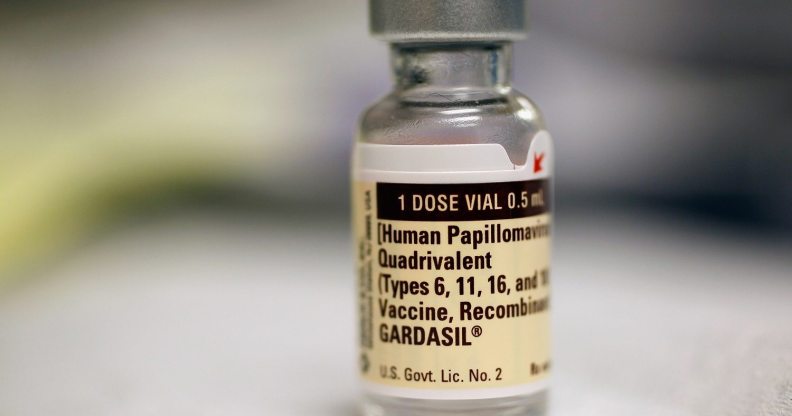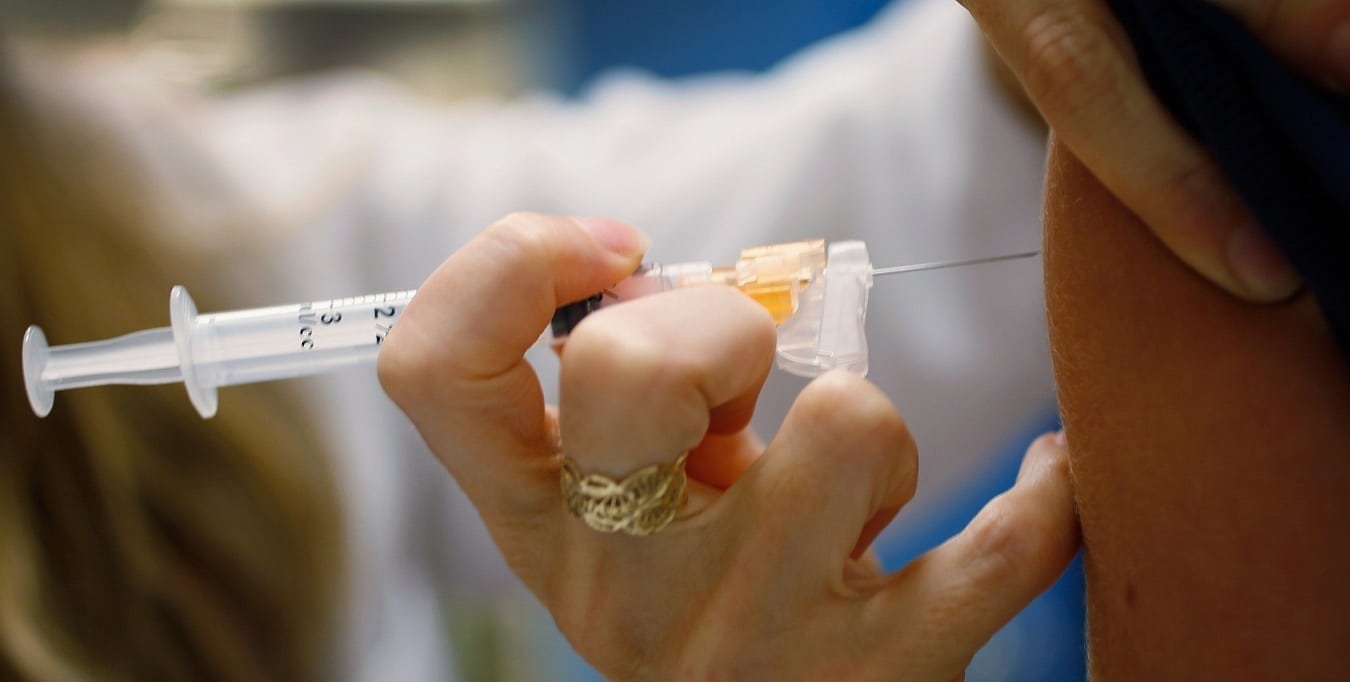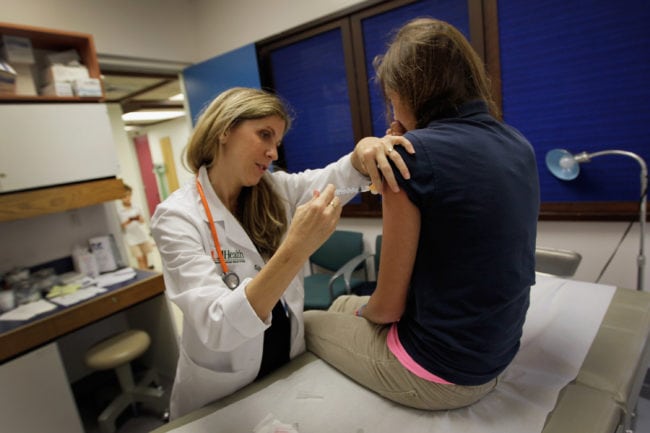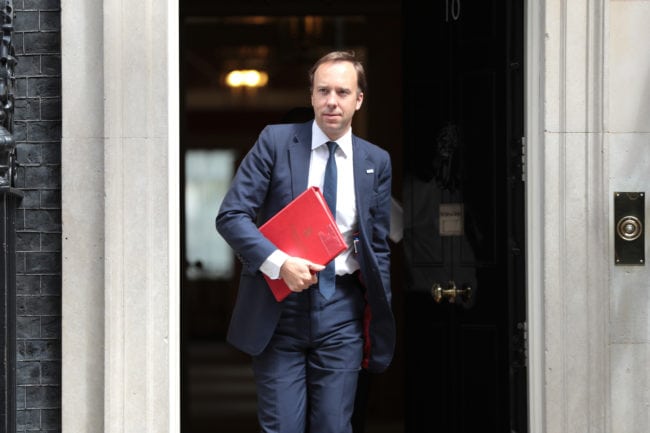HPV vaccine to be extended to boys as girls-only approach ‘leaves gay men at risk’

A bottle of the Human Papillomavirus vaccination (Joe Raedle/Getty)
HPV vaccines are set to be extended to teenage boys as well as girls – after recommendations from a key advisory panel.
A routine vaccination programme began in 2008 among school-age girls in the UK to tackle the human papilloma virus, which spreads through genital or oral contact and can cause a number of cancers.
Only girls are vaccinated on the grounds that men who only have sex with women would be protected from transmission through ‘herd immunity’.

(Getty)
However, the ‘herd immunity’ plan left gay men vulnerable. As unvaccinated men have sex with other unvaccinated men, they are effectively left without any protection from HPV- allowing it to spread through the gay community.
The Joint Committee on Vaccination and Immunisation this week published a report recommending that the vaccine is routinely extended to school-age boys as well as girls.
The JCVI found that routinely administering the vaccine to teenage boys as well as girls would significantly reduce the number of HPV-related cancers deaths.
Addressing previous fears about cost, it said: “If considering a cost-effectiveness analysis where a combined girls’ and boys’ programme is compared to no vaccination, gender-neutral HPV vaccination is highly likely to be cost-effective.”
The Welsh and Scottish governments have already vowed to implement the change.

A doctor gives an HPV vaccination to a 13-year-old girl (Joe Raedle/Getty)
Welsh Health Secretary Vaughan Gething confirmed: “I’ve decided that the HPV vaccination programme will be extended to include adolescent boys in Wales. This follows advice from the Joint Committee on Vaccination and Immunisation.”
Scotland’s Public Health Minister Joe FitzPatrick said: “I am pleased to announce that the Scottish Government will implement a HPV vaccination programme for adolescent boys in Scotland.
“We know from the recommendations made by the Joint Committee on Vaccination and Immunisation that this will help reduce diagnoses of HPV related cancers and save lives in years to come.
“Work to develop the programme will now begin, in conjunction with Health Protection Scotland and NHS Scotland, to be rolled out as soon as is practicable.”
The UK government, which will decide the policy for England, says it will “carefully consider the JCVI’s advice” and provide an update shortly.

UK Health Secretary Matt Hancock (Dan Kitwood/Getty)
However it was reported last month that then-Health Secretary Jeremy Hunt was set to give the go-ahead for boys to be inoculated against the cancer-causing human papillomavirus (HPV).
Hunt was replaced by Health Secretary by Matt Hancock on July 9, after resignations from the government over Brexit forced a reshuffle.
Conservative MP Mike Freer, who has long called for the extension of HPV vaccines to boys, told PinkNews: “I welcome the committee’s recommendation. I have long been calling for the committee to change its view and back an extension to the vaccination programme to include boys.
“The committee’s conclusion that this change would be highly-cost effective is yet another compelling reason to press ahead. Other countries have already made this change and we should do the same.”
Campaigners have celebrated the decision to extend the vaccine in Scotland and Wales.
Liberal Democrat Welsh Assembly Member Kirsty Williams said: “The Welsh Liberal Democrats have been calling for this policy change, in line with mounting scientific evidence, for a while.
“We welcome with delight today’s decision by the Health and Social Care Secretary to extend the HPV (human papilloma virus) jab to teenage boys after a recommendation was made by the Joint Committee on Vaccination and Immunisation.
“This ensures gender equity for boys, especially young gay, bisexual and transgender boys, whose health was unfairly endangered by the previous policy.”
Dr Jane Fenton-May of the Royal College of GPs said: “This is a positive step. The HPV vaccine protects against a range of conditions and cancers, regardless of a patient’s gender. It’s a simple injection and it will benefit patients.”

